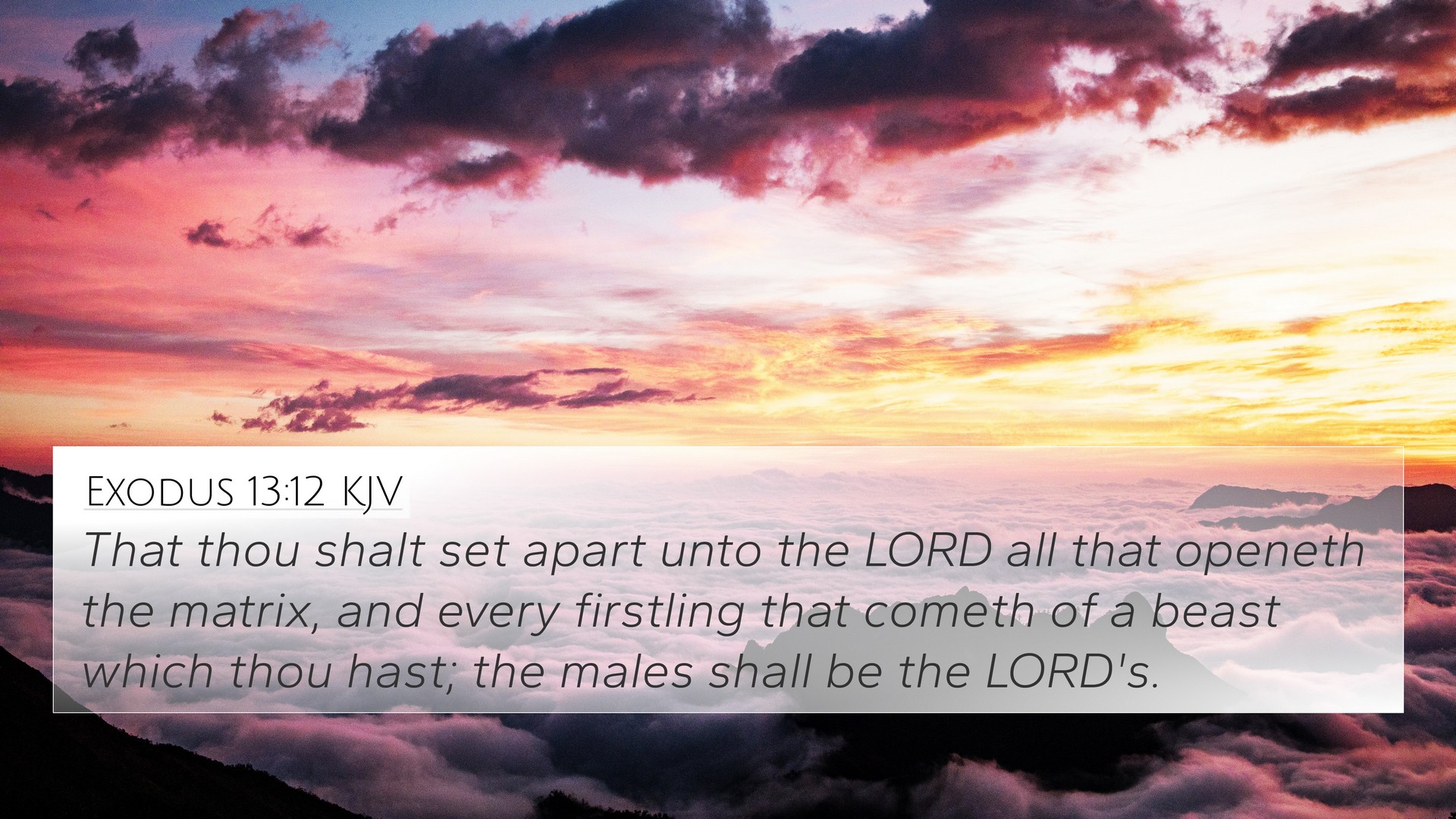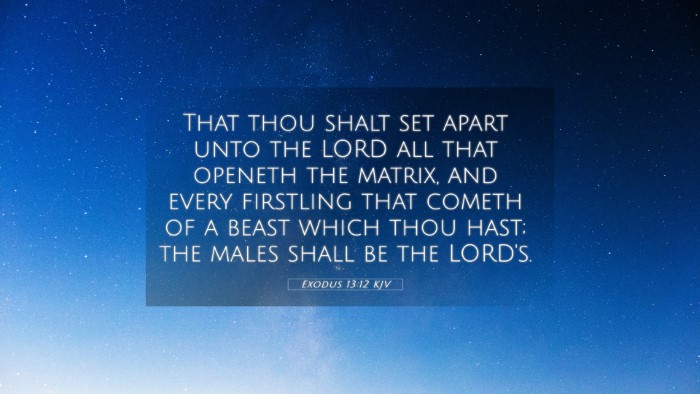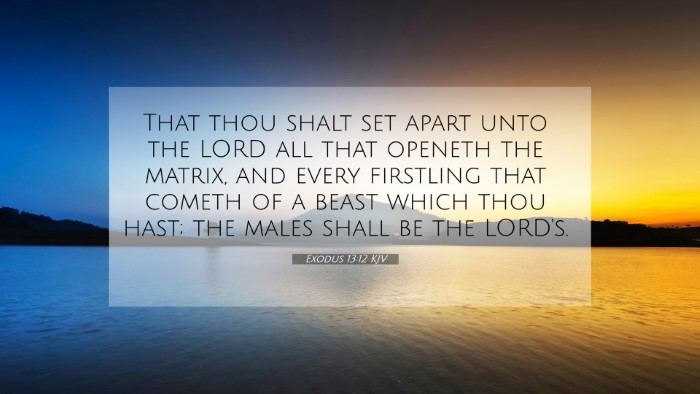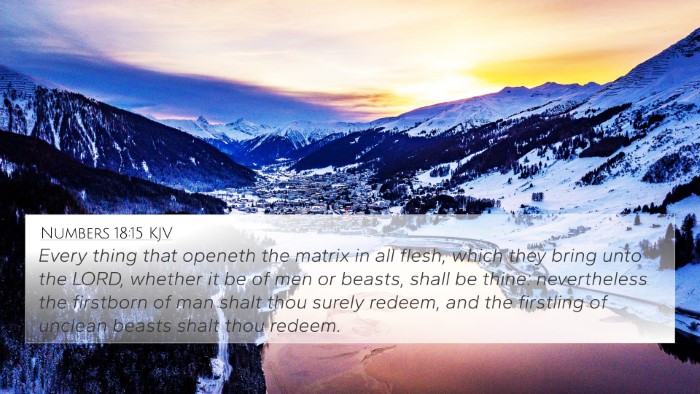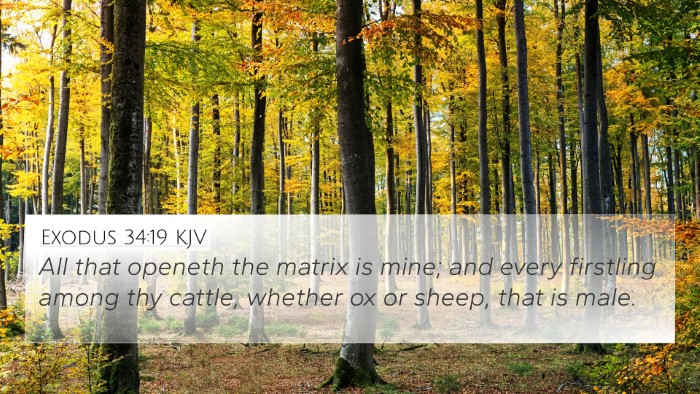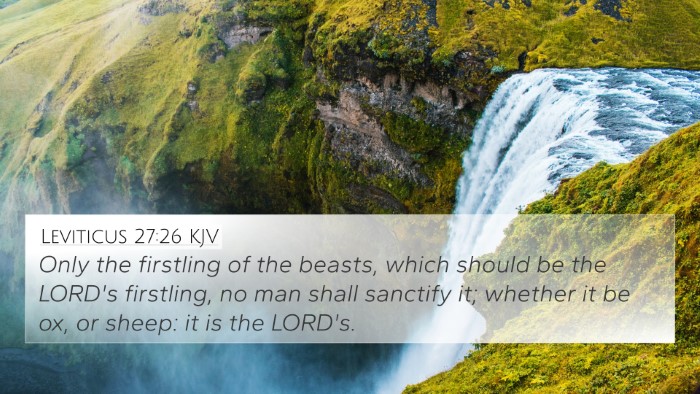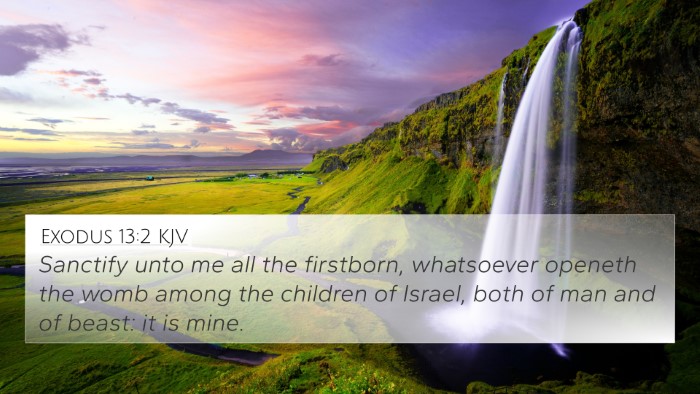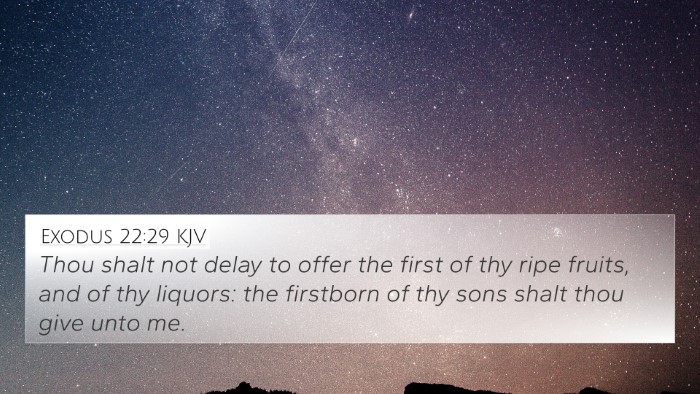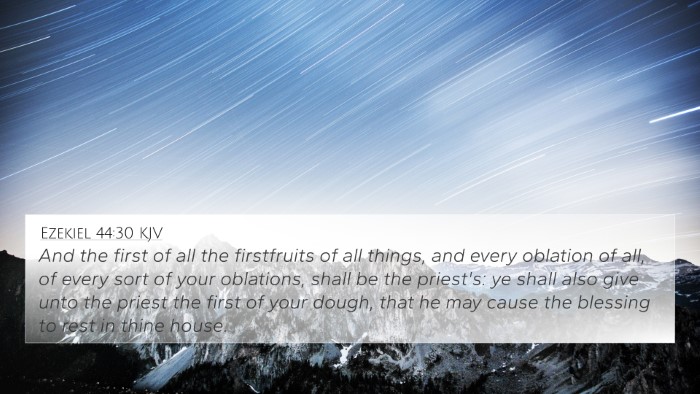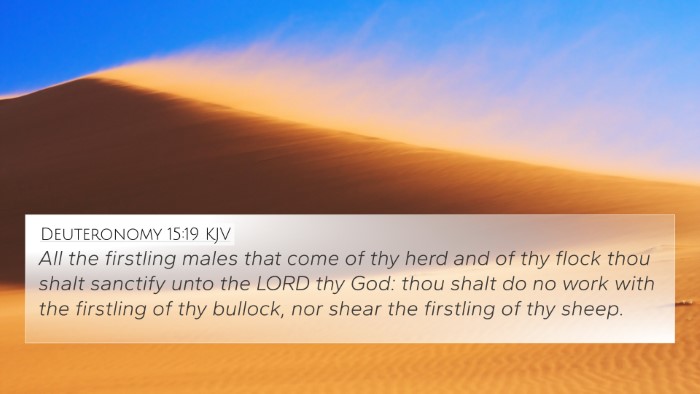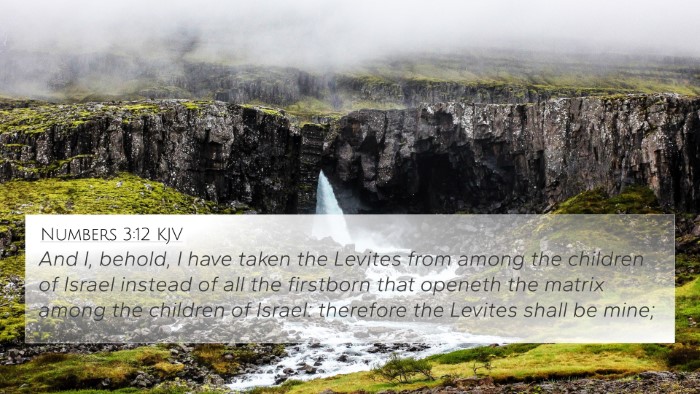Understanding Exodus 13:12
Verse: Exodus 13:12 - "That thou shalt set apart unto the LORD all that openeth the matrix, and every firstling that cometh of a beast which thou hast; the males shall be the LORD's."
Summary of Meaning
This verse emphasizes the principle of consecration, specifically regarding the firstborn of both humans and livestock. The Israelites were commanded to set apart the firstborn to the Lord as a recognition of God’s sovereignty and deliverance of His people from Egypt.
Commentary Insights
-
Matthew Henry:
Henry notes that this command serves as a reminder of God’s mighty deliverance from Egypt. The firstborn were to be consecrated to Him in acknowledgment of the way He spared Israel's firstborn during the plague, leading to their freedom.
-
Albert Barnes:
Barnes suggests that dedicating the firstborn demonstrates God’s ownership over all creation. This principle enables an understanding of the relation between God and His people, where the first fruits of all things are offered back to God as a sign of gratitude.
-
Adam Clarke:
Clarke comments on the significance of the firstborn in the Jewish tradition, highlighting how this act serves both a spiritual and practical purpose. It fosters a culture of remembrance, compelling future generations to reflect on God’s deliverance.
Connections to Other Bible Verses
Exodus 13:12 is interconnected with various other scriptures that collectively reinforce the themes of consecration, redemption, and God’s sovereignty. Here are 10 related Bible cross-references:
- Exodus 13:1-2: Introduction to the consecration of the firstborn.
- Numbers 3:13: Reinforcement of the command to treat firstborn males as God’s possession.
- Luke 2:23: Reference to the presentation of Jesus as the firstborn in the temple.
- Romans 12:1: Calls believers to present themselves as living sacrifices, living out the principle of consecration.
- 1 Peter 1:18-19: Highlights redemption through the blood of Christ, underscoring the concept of being set apart for God.
- Hebrews 12:23: Speaks of the church as the general assembly and the firstborn, emphasizing the connection to God’s people.
- Matthew 1:2-16: Genealogy of Jesus, the firstborn Son, linking back to Old Testament prophecies.
- Deuteronomy 15:19-20: More instructions on dedicating the firstborn and how it should be treated.
- 1 Corinthians 15:20: Jesus referred to as the first fruits of those who have fallen asleep, connecting Him with the idea of firstborn sanctity.
- Exodus 34:19-20: Reiterations regarding the firstborn's consecration as part of the covenant requirements.
Thematic Bible Verse Connections
The verse highlights several key themes relevant to both Old and New Testament beliefs:
- Consecration: The act of setting apart for a sacred purpose.
- Redemption: The overarching narrative of God redeeming His people.
- Sovereignty of God: Recognition that all creation belongs to God.
- Remembrance: The significance of passing down the stories of God's deliverance.
Applying Cross-Referencing Methods
Understanding Exodus 13:12 involves applying various cross-referencing methods:
- Bible Concordance: Searching key terms like "firstborn" and "consecration".
- Bible Cross-Reference Guide: Utilizing tools to find related scriptures that discuss themes of deliverance and holiness.
- Comparative Bible Analysis: Exploring the differences and similarities between Old Testament laws and New Testament teachings.
Conclusion
In conclusion, Exodus 13:12 serves not just as a historical command but as a theological foundation for understanding God's desires for relationship with humanity. The act of consecrating the firstborn is reflective of a broader theme of redemption and recognition of God's sovereign rule over all. This verse is intricately woven into the Biblical narrative, connecting to numerous passages that illuminate the importance of sacrifice, gratefulness, and faithfulness.
